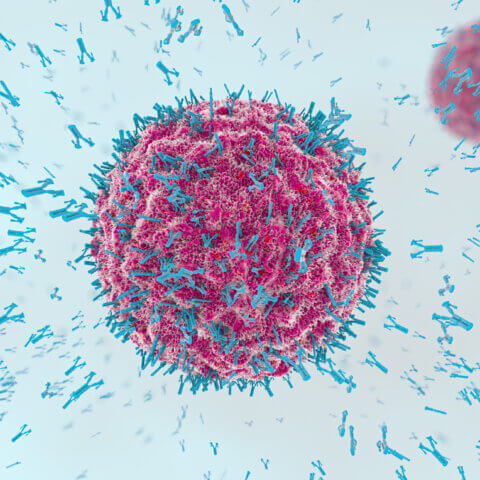Last Updated: June 23, 2025, 9 am UTC
The 2025 American Society of Clinical Oncology (ASCO) Annual Meeting offered a compelling look into the future of cancer care—one that is increasingly shaped by innovation, data, and a deeper commitment to the patient experience. From artificial intelligence (AI) transforming diagnostic precision to real-world data (RWD) informing treatment strategies and policy, the conference highlighted how oncology is evolving beyond traditional paradigms. This year’s discussions also underscored a growing emphasis on reducing the burden of care, with new solutions aimed at addressing financial toxicity and improving access. In parallel, continued advances in targeted therapies—particularly next-generation antibody-drug conjugates (ADCs)—reflect the broader shift toward biologically sophisticated, personalized treatment approaches. As the field continues to advance at pace, the insights from ASCO 2025 serve as a valuable roadmap for sponsors, clinicians, and stakeholders navigating this dynamic landscape.
The Convergence of AI and Oncology
ASCO 2025 showcased a clear shift: oncology is no longer just a clinical science—it is rapidly becoming a data-driven, technology-enhanced field. AI emerged as one of the most talked-about drivers of innovation, with sessions highlighting its role not only in diagnostics but also in clinical decision-making and operational efficiency.
AI in Clinical Practice
AI’s growing utility in oncology is perhaps most tangible in diagnostic pathology. Several presenters shared how AI-powered algorithms are enhancing the sensitivity and specificity of immunohistochemistry (IHC) scoring—especially in complex cases such as HER2-low and HER2-ultralow breast cancers. These marginal classifications are often missed or inconsistently scored by pathologists, yet can significantly influence treatment eligibility, particularly as new therapies target these subgroups.
In radiology, AI tools are augmenting early detection capabilities by flagging subtle tumor characteristics that may evade the human eye. These systems not only speed up interpretation time but also reduce inter-reader variability—improving diagnostic consistency across institutions.
Beyond diagnostics, AI is being piloted to improve clinical trial recruitment. Machine learning models can analyze vast electronic health records and genomic data sets to identify trial candidates with greater precision. This has the potential to reduce recruitment timelines, increase enrollment diversity, and ensure that novel therapies reach the patients most likely to benefit.
Focus on the Patient: Addressing Financial Toxicity
While technology was a dominant theme, ASCO 2025 also made space for a pressing human concern: financial toxicity. The high costs associated with cancer care—including travel, time away from work, copays, and uncovered treatments—continue to compromise both trial participation and care adherence.
One particularly moving session shared stories of patients withdrawing from clinical trials simply because they couldn’t afford to miss work. For many, participating in research or pursuing an optimal treatment path means taking unpaid leave, incurring travel expenses, and managing additional caregiving responsibilities.
Panelists called for expanded access to support services—such as transportation stipends, childcare reimbursement, and virtual visit options—to reduce these burdens. Additionally, some suggested that sponsors and institutions should consider embedding financial navigation teams into trial workflows to proactively address patient needs.
Real-World Data: A Catalyst for Change
Another area gaining traction is the incorporation of RWD into clinical decision-making and regulatory strategy. As randomized controlled trials (RCTs) remain the gold standard, RWD provides complementary insights that reflect how treatments perform outside the controlled environment of clinical studies.
At ASCO 2025, several presenters highlighted how RWD is helping to identify response patterns in underrepresented populations, monitor long-term safety, and optimize therapy sequencing. These applications are particularly valuable in rare cancers and late-line settings, where RCTs may be infeasible or outdated.
The FDA’s increasing willingness to consider real-world evidence (RWE) in regulatory submissions is accelerating this trend. From label expansions to post-marketing commitments, RWE is evolving from a supplemental data source to a strategic asset in drug development.
Novel ADC Classes: Bispecific/Dual Payload ADCs
ASCO 2025 put next-gen ADCs on the map: not just simple “antibody +toxin” models but intelligent molecules with dual-targeting, dual payload, and multifunctional immune roles. Phase 1 dosing and safety trials are already underway across diverse tumor types, including ovarian, endometrial, and triple-negative breast cancers. Dual-target ADCs are also being tested in combination with checkpoint inhibitors, underscoring their potential synergy in immuno-oncology. This evolution highlights a need for biomarker refinement to identify patients with co-expression of both targets or sufficient receptor density to enable effective biparatopic binding.
With candidates like IBI3010, IBI3014, and dual-war contenders like JSKN021, the future of ADCs is bolder, smarter, and biologically multifaceted. The next 12–18 months could yield first-in-human data that could rewrite ADC therapy as we know it.
The Rise of MRD and Biomarker-Driven Strategies
Precision oncology was another central focus, with a noticeable pivot toward Minimal Residual Disease (MRD) testing and advanced biomarker analysis. These tools enable clinicians to detect microscopic traces of cancer that remain after treatment—offering powerful prognostic and predictive value.
Many diagnostic companies at ASCO showcased minimal residual disease (MRD) technologies aimed at providing earlier insights into treatment response and relapse risk. In colorectal cancer, circulating tumor DNA (ctDNA) continues to show promise in identifying patients with MRD, with large-scale studies—such as DYNAMIC, Circulate, Circulate-US, and Circulate-Spain—poised to offer greater clarity. The MONSTAR-SCREEN-3 study introduced a more advanced approach using whole-genome sequencing, while the I-SPY2 trial in breast cancer also explored ctDNA’s utility. Although MRD is already a key decision-making tool in hematologic malignancies, its application in solid tumors is gaining traction.
Additionally, sessions emphasized that biomarker testing is no longer a luxury or exploratory measure—it is a foundational part of oncology care. From tumor mutational burden to PD-L1 expression and beyond, biomarker-informed treatment selection is improving efficacy while avoiding unnecessary toxicity.
Partnerships between diagnostic firms and biopharma sponsors are fueling this innovation. Together, they are co-developing companion diagnostics to support targeted therapies and adaptive trial designs that tailor interventions based on molecular profiles.
A Holistic Vision for Cancer Care
The advancements discussed at ASCO 2025 suggest a future in which oncology is not just more effective but more equitable and personalized. AI is enhancing accuracy and efficiency. Real-world data is refining strategy. Financial and logistical barriers are being addressed. And increasingly sophisticated diagnostics are empowering precision medicine.
Still, experts cautioned that innovation alone isn’t enough. Real transformation requires alignment across the ecosystem—from payers and providers to regulators and research sponsors. Ensuring that innovations translate into access and improved outcomes for all patients remains the ultimate challenge—and opportunity.
Premier’s deep experience in oncology, combined with a proactive approach to emerging trends, allows us to help sponsors navigate complexity, accelerate development, and optimize trial design. By staying at the forefront of innovation—from AI integration to real-world evidence—we support programs that are both scientifically rigorous and patient-centric. Let’s connect to explore how we can advance your oncology strategy with confidence.
ABOUT PREMIER RESEARCH:
Premier Research, a global clinical research, product development, and consulting company, is dedicated to helping innovators transform life-changing ideas and breakthrough science into new medical treatments. We offer strategic solutions across the entire development lifecycle, from pre-clinical through commercialization, specializing in smart study design and full-service clinical trial management.
Leveraging technology and therapeutic expertise, we deliver clean, conclusive data with a focus on reducing development timelines, securing access to the right patients, and effectively navigating global regulations to ensure submission-ready results.
As an organization that puts patients first, we pride ourselves on helping customers answer the unmet needs of patients across a broad range of medical conditions. Visit premier-research.com.

 Webinar
Webinar 


 Perspectives Blog
Perspectives Blog 